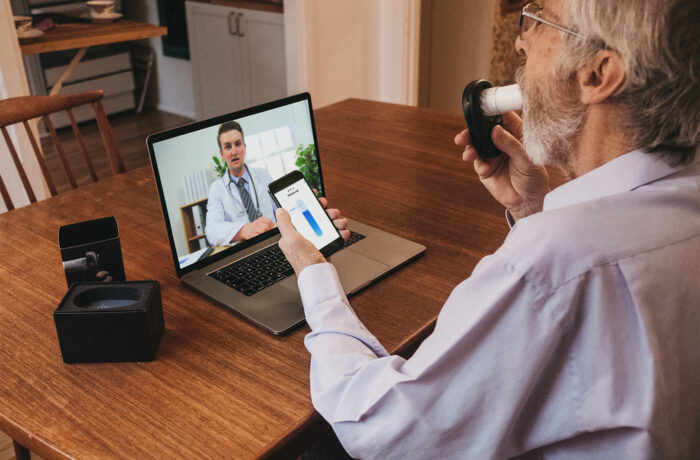Reflections on creating a digital health “ecosystem”
Posted on
With a huge amount going on in the digital health space this month, Yinka Makinde, Programme Director for DigitalHealth.London recaps on recent events in the digital health “ecosystem”, her study tour to Denmark, and her three key concerns in the approaching months.
I’ve come to realise that creating an ‘ecosystem’ that is well functioning is not an easy task. It relies heavily on two things in my mind – Trust and [healthy] competition. It was someone that I sat next to at a dinner whilst on a recent Southern Denmark Healthcare Innovation study tour, who confirmed this. Lack of trust will prevent true collaboration between the NHS and industry.
Never has this been more apparent than at our recent event – ‘Channel shift to digital outpatients’ – co-hosted with NHS Improvement, where we brought senior representatives from providers together with digital health innovators. Despite a positive outcome to the event, and commitment to move this agenda forward, there were mixed views from attendees around whether industry should have been at the event. How do we crack through this mental barrier? That’s why ‘Capability building’ is so critical, and its why I believe passionately that DigitalHealth.London’s role is to support NHS England in building the confidence, awareness and digital leadership capabilities of not only CIOs and CCIOs, but of the broader NHS workforce. For that, we are just about to launch a search for candidates for the first year of the Digital Pioneer Fellowship. Keep an eye out.
On the industry mobilisation front, this month we helped the Healthy London Partnership get closer to innovators. On 24 October we co-hosted a lively session where diabetes digital health SMEs had the opportunity to meet and speak with the London Health and Care Information Exchange (LHCIE) team. The focus was on data sets and exploring commercial models for engaging industry in the LHCIE. There was a great richness to the discussion having focused it on one therapeutic area, and it proved that we need to do more of this.
Taking this forward we’d like to work with more stakeholders operating in the diabetes space, clinicians, patients, innovators, to map out with the LHCIE and the Professional Record Standards Body (PRSB) the data set that is built for the ‘new models of care’ future, and value based healthcare. A topic I had the pleasure of delving deeper in to, on the Southern Denmark Healthcare Innovation study tour, with thanks to our colleagues at Kent Surrey Sussex AHSN for the invitation.
With procurement, the realisation that the Department of Health Procurement Transformation Programme and Future Operating Model does not provide a vehicle for Digital Health innovators, has stimulated a surge in responses from industry for DH.L to act as a voice for industry on this matter.
We are all too familiar with the dearth of evidence to prove the credibility and value of digital health innovations. We know that the main reasons for this are cost and time associated with running trials. Recently I have heard numbers in the region of £1.5m – £2m to run such trials. Get serious! The average digital health start-up and SME does not have this kind of budget. This is why we have started to convene key stakeholders in a conversation to explore how collaboratively we might create an infrastructure to support digital health companies pursue trials and studies significantly for less money. It’s early days, but we are keen to engage innovators in this conversation to understand approaches that have been taken to date.
Finally, a recent invite to attend a roundtable discussion on Brexit, organised by SEHTA with a special appearance by the Deputy Mayor for Business, triggered further thoughts about the current plight of the digital health SME. Whilst committed to the UK healthcare market and the NHS in particular, many are now starting to make plans to move their corporate offices out of the UK. Companies are seeking help in understanding other European countries that could act as their domicile. The uncertainty that prevails around Brexit is palpable. Companies are in limbo. They don’t know whether to invest their money in progressing regulatory approval now, or wait to see how UK regulation might change. Significantly delaying their development and growth. Some reported a growing sentiment among investors to exercise caution in investing in UK companies. Thankfully this did not deter UK based venture capital firms White Star Capital, MMC Ventures, and LocalGlobal from investing £7m in DH.L Accelerator company Echo, together with Germany based Global Founders Capital.
Collectively we need to maintain a healthy environment for our digital health companies to thrive in. Otherwise this risks the progress of and impact that can be made in digital transformation of our precious health and care system.
A look ahead
I look forward to sharing our November news in a few weeks’ time, where I’ll feedback on our involvement at this year’s GIANT Health event; our NHS Masterclass; our industry workshop on digital health safety, and progress on the digital outpatients work. Also, if you’re a digital health innovator, keep your eyes peeled for our latest exciting opportunity to meet with Ryse Asset Management, a fund management firm seeking to meet interesting companies. Competition to launch imminently. Have a great month.


